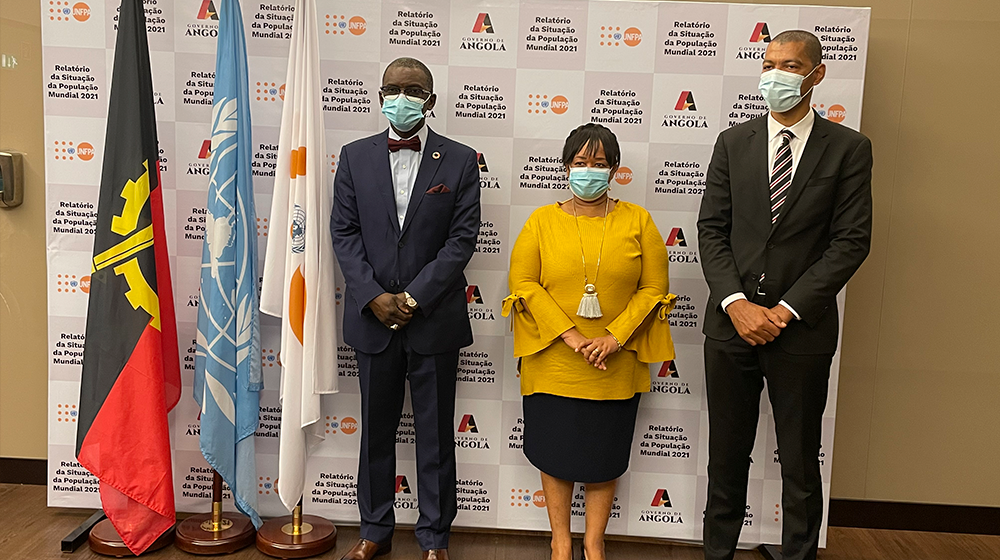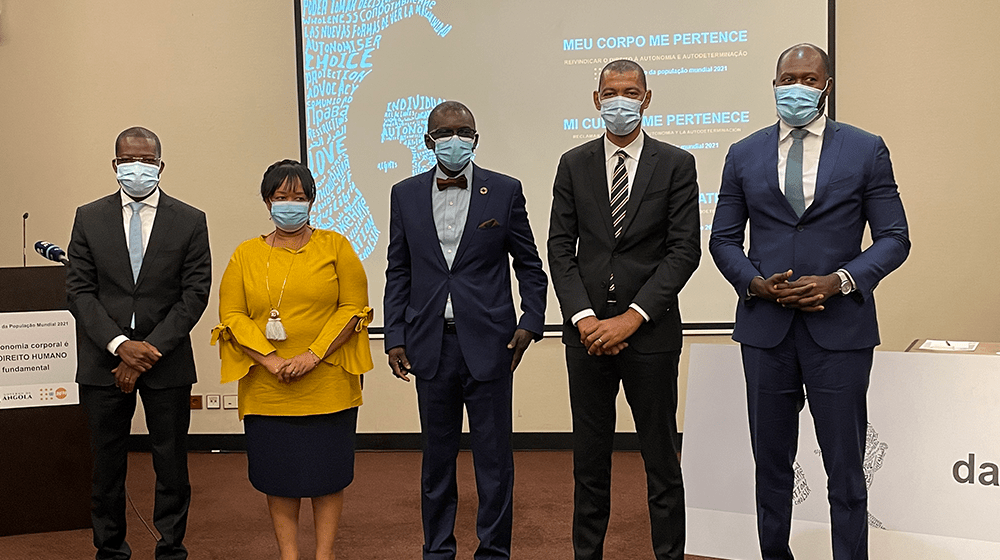Report on the State of the World Population 2021 UNFPA reveals violence against women
Nearly half of all women are denied from exercising their right of having control of their bodies, says a new UNFPA study, titled, My Body Belongs to Me. Worldwide, violations include rape, forced sterilization, virginity testing, female genital mutilation, and other restrictions on the right to choose.
Nearly half of women in 57 developing countries do not have the right to decide whether to have sex with their partners or to use contraceptive methods or seek medical care, according to UNFPA's annual report on the State of the World's Population 2021, released at a conference in the press on June 29, in Luanda. In Angola, around 35% of women questioned stated that they are free to say no to their husbands if they do not want to have sex. About 31% said they are free to require their husbands to use a condom. Regarding their health care, the study reveals that three-quarters (75%) of women participate in making these decisions: 22% of women said they decide alone, 53% decide together with their husbands

Promotion of Women Dra. Elsa Maria Barber Dias Dos Santos, and Ministry of Economy and Planning Secretary of State for Planning, Dr. Milton Reis
For the first time, a United Nations report focuses on the theme of body autonomy, the power of women to make choices about their bodies without fear of violence or that someone else decides for them. The power of women, their agency, their knowledge of sexual reproductive health and rights enable them to make informed decisions. This lack of bodily autonomy has massive implications beyond the profound harm to women and girls: it potentially depresses economic productivity and increases poverty rates in developing countries.
Through this groundbreaking report, UNFPA was able to measure the power of women to make their own decisions about their bodies and the extent to which country laws support or interfere with their right to make those decisions. The data show a link between decision-making power and higher levels of education. In countries where data are available, it can be seen that only 55% of women are fully empowered to make choices about health care, conception and the ability to say yes or no to sex with partners. 71% of countries guarantee access to general maternity care and only 75% legally guarantee full and equal access to contraception, while only about 80% of countries have laws that support sexual health and well-being, 56% have laws and policies to support comprehensive sex education.
The report also presents many other forms of violation of bodily autonomy, including laws that force girls to “marry the rapist”, exempting them from legal responsibility, or the absence of legislation on marital rape. In other parts of the world, legislation even restricts women's movements outside the home.
In the 2020 report, UNFPA also states that girls and boys with disabilities are nearly three times more likely to be subjected to sexual violence, with girls at higher risk. It also reveals that bodily autonomy is often violated, even in situations that should protect women, as in some parts of the world where justice systems may require a survivor to undergo an invasive virginity test.
“The fact that nearly half of women are still unable to make their own decisions about whether or not to have sex, use contraceptives or seek medical attention should all of our outrage,” said UNFPA Executive Director Dr. Natalia Kanem. “In essence, hundreds of millions of women and girls lack autonomy over their bodies. Their lives are governed by others.” “In contrast,” continues Dr. Kanem, “a woman with control over her body is more likely to be strengthened in other spheres of her life. She gains not only autonomy but also advances in health and education, income and security. She has more chances to prosper, as does her family.”
Despite the progress, as commented by the Angolan Secretary of State for Planning, Dr. Milton Reis, during the presentation of the report, there are forms of violence against women in Angola, with emphasis on the refusal to pay alimony, violence sexuality and early marriage or pregnancy. To obtain real solutions concludes the UNFPA report, society needs to take into account the needs and experiences of those affected. The involvement of men and boys, faith-based organizations and other key stakeholders are critical to dealing with negative social norms that perpetuate violence. Empowering girls and boys to claim their rights leads them to make healthy decisions and engage in healthy and safe behaviour and is essential to enforcing the laws and policies that protect women from violence.


